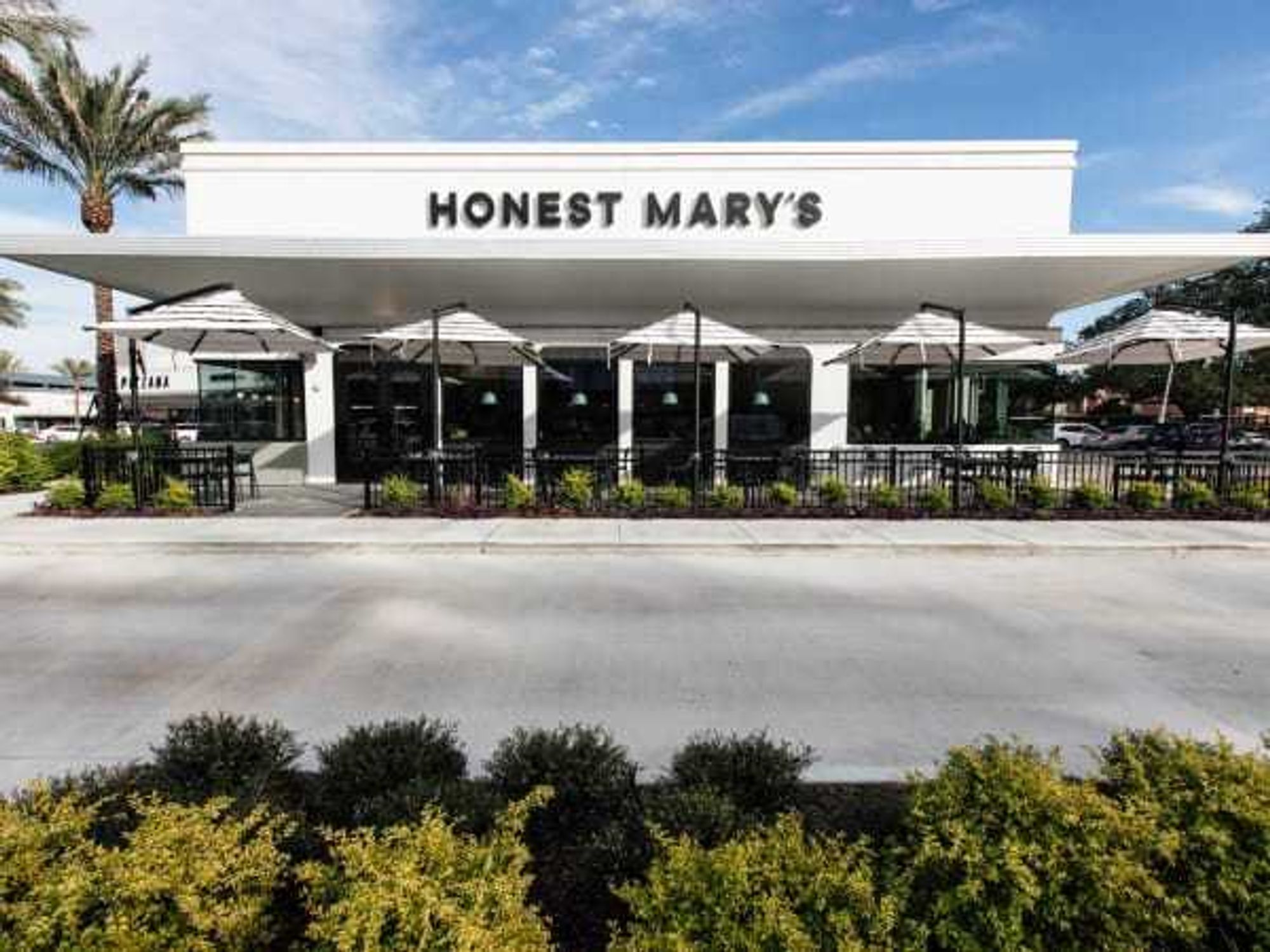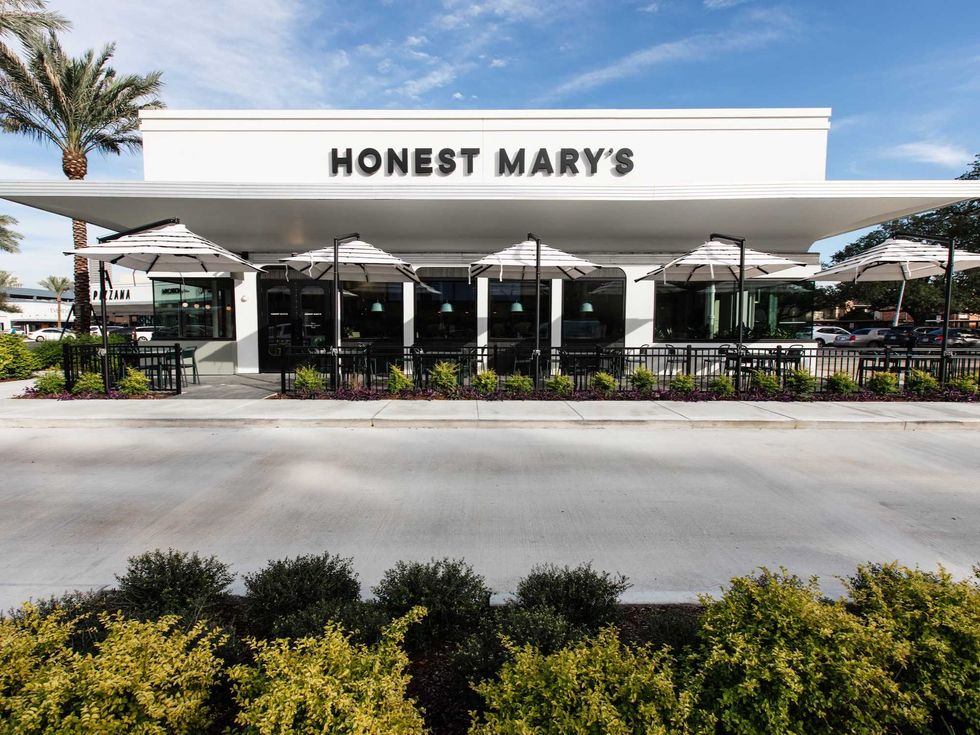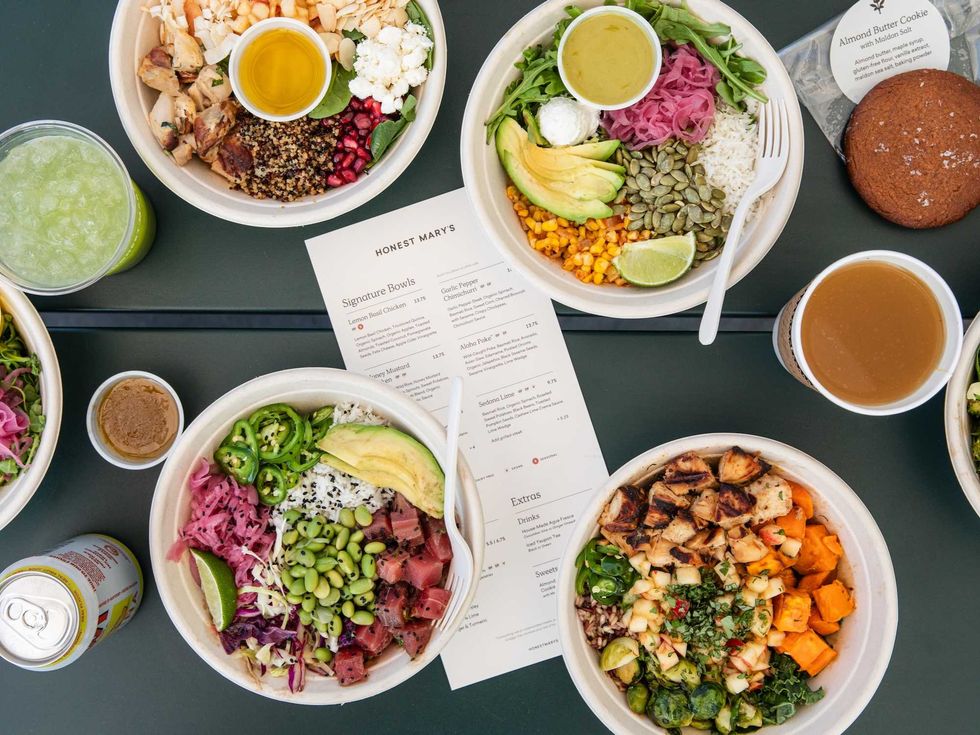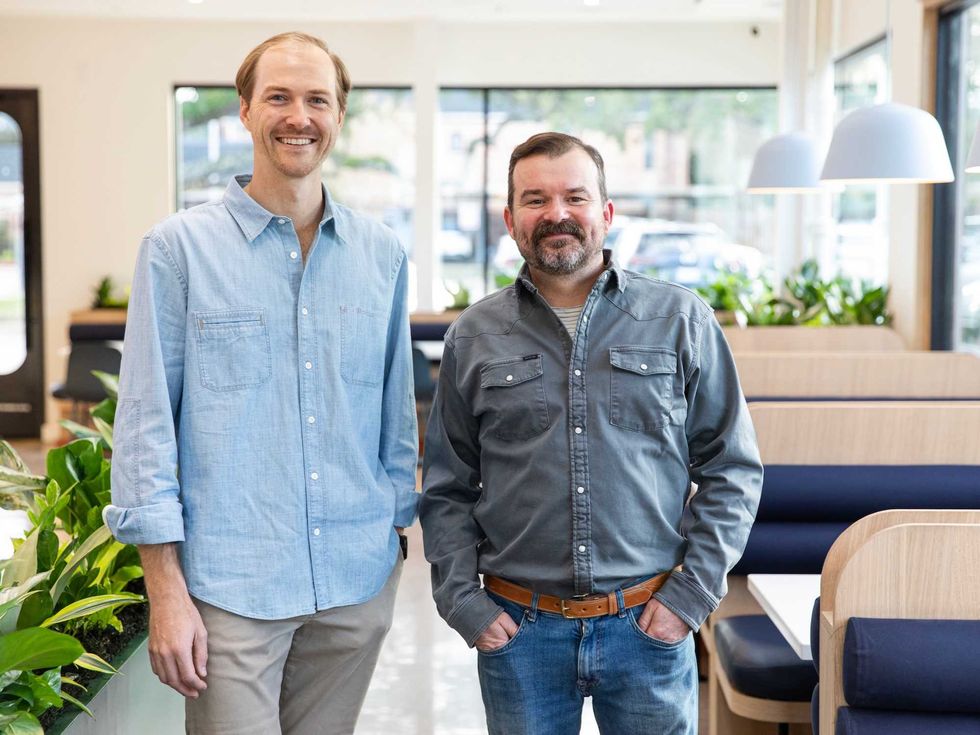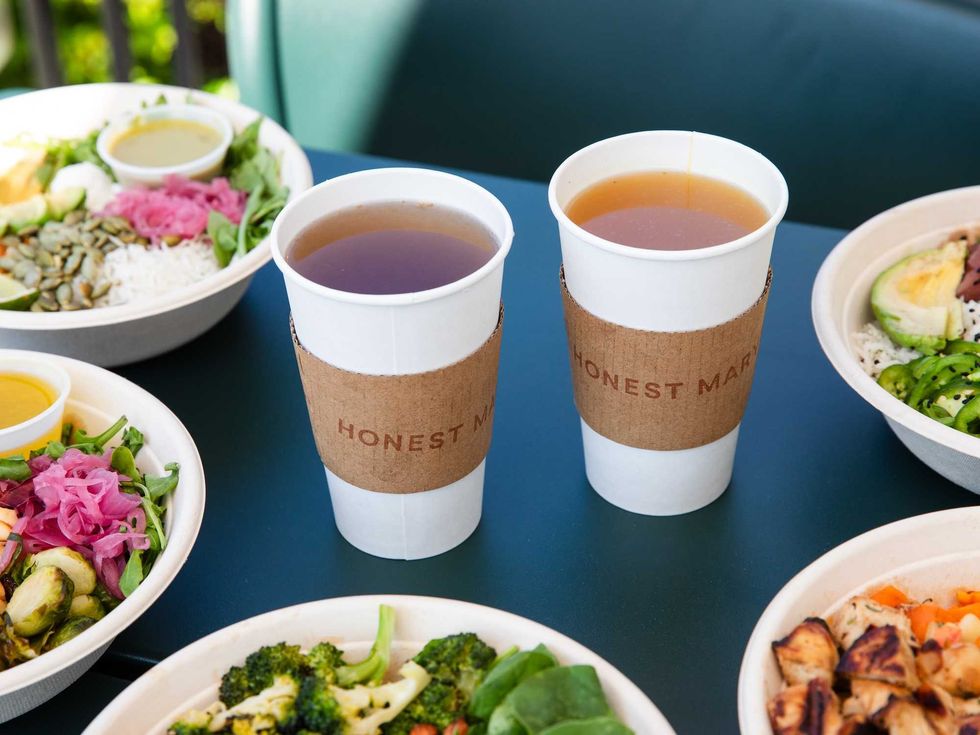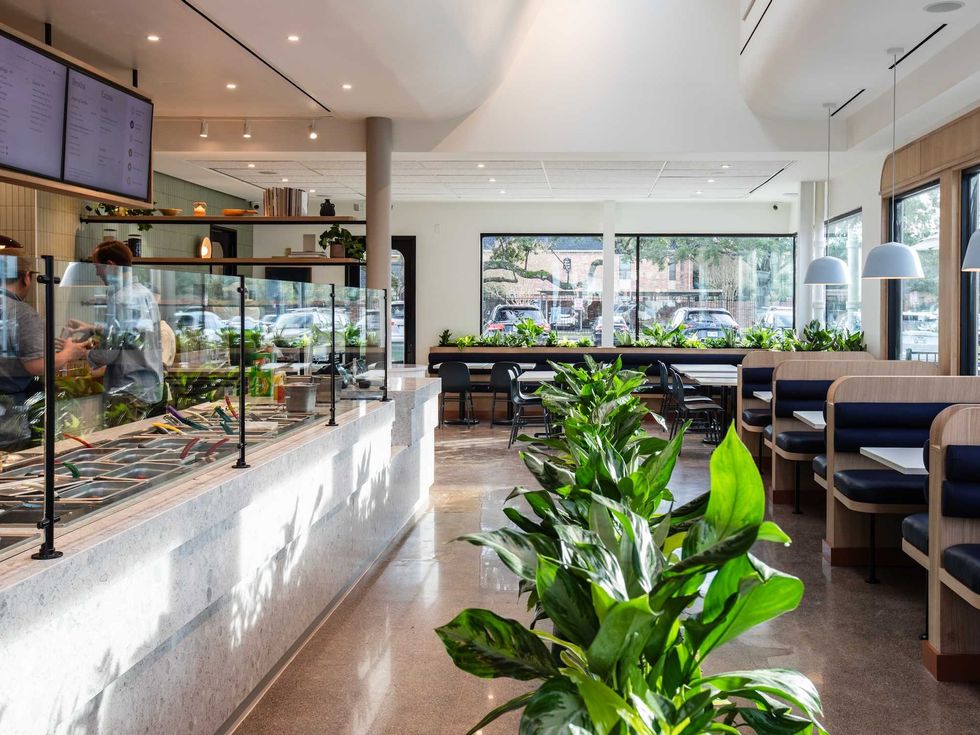A Mentality War
Inside Houston's coffee culture: Local guru David Buehrer fights Starbucks,Walmart
- "For me, latte art is like a seal of approval," says David Buehrer. "It getspeople excited about the coffee."Photo by Dillon Sorensen
 "This is really important - the grinder has to be cleaned out every day, andthat requires adjusting and making sure it tastes right," David tells me.Photo by Dillon Sorensen
"This is really important - the grinder has to be cleaned out every day, andthat requires adjusting and making sure it tastes right," David tells me.Photo by Dillon Sorensen Keith Adkins of Fontana Coffee demonstrating the roasting process at theEastside Urban Harvest Farmers Market.Photo by Dillon Sorensen
Keith Adkins of Fontana Coffee demonstrating the roasting process at theEastside Urban Harvest Farmers Market.Photo by Dillon Sorensen
Upon arriving at the Eastside Urban Harvest Farmer’s Market, David Buehrer sent me a text message to inform me that he was at Zilla. I started wondering what Zilla could be: Zilla Grass-fed Beef, Zilla Artisanal Soaps, Zilla Cheesemongers, Zilla Farms, and Zilla Produce were all reasonable possibilities.
I wandered aimlessly for a few minutes until I found him chowing down on a very Texas-sized waffle in front of Zilla Street Eats.
I first met Buehrer at a coffee tasting a few months ago. We seem to have a proclivity for running into each other around town: A couple of months ago, I saw him at the City Hall Farmer’s Market, and during the Christmas holidays, I ran into him at Catalina Coffee. More recently, I ran into him catching up with Buffalo Sean at Melange Creperie.
Buehrer is a busy guy. He owns Greenway Coffee & Tea, bartends at Anvil, and is fervently working to help the Specialty Coffee Association of America plan its next 9,000 member gathering in Houston.
Nonetheless, he never skips out an opportunity to talk about his passions — and willingly agreed to meet up with me to chat about Houston’s coffee culture.
After we caught up and he finished his waffle, we headed over to the Revival Meats table to chat with Morgan Weber. Weber and Ryan Pera, formerly of The Grove, are opening Revival Market, a one-stop shop neighborhood grocery store that will exclusively carry local products.
Revival is slated to become an integral part of Houston’s coffee culture, carrying beans from Amaya Roasting Co. (owned by Max Gonzalez of Catalina Coffee), Katz’s, and Fusion Beans, in addition to featuring a full service coffee bar. Buehrer and Gonzalez are working with Weber to build the coffee program at Revival.
“Morgan knows what good coffee is and he knows what he wants, and he’s going to make sure he gets it,” Buehrer later tells me.
We then wander over to talk with Keith Adkins of Fontana — a roasting company that distributes to restaurants like Barnaby’s, Shade, and Canopy. He’s doing a small demonstration of the roasting process at the market for those who are interested in learning about the process. But for Buehrer, this Saturday morning trip to the market is more than just a time for catching up with his colleagues and friends; it’s an integral part of running Greenway Coffee Company.
Every Saturday, Buehrer heads to the market and loads up the back of his diesel powered Volkswagen hatchback with farm fresh milk from Jacksonville, Texas. Mark Ganske, owner of Way Back When Dairy, has been in the dairy industry his entire life, as were his father and grandfather. While most milk is pasteurized above 153 degrees and chalk-full of antibiotics and hormones, Ganske' product is only pasteurized at 146 degrees, antibiotic and hormone free, and ethically procured.
“On most farms, cows are lucky if they live to be five. I have cows that are 12-14 years old,” he says.
Why all of this talk about milk?
“Most of my customers order drinks that have milk in them, and the difference between farm fresh milk and the other stuff is like the difference between like — Chili’s and Vic & Anthony’s,” Buehrer says. “I really want the people to get connected to the product.”
After they finish their transaction and discuss the possibility of an upcoming milk tasting at the shop, Buehrer and I head over to Greenway to continue our discussion.
Greenway Coffee & Tea is about as unpretentious as it gets: No fancy lighting or mid-century modern furniture in this coffee shop. It’s located in the middle of the Greenway Plaza 5 food court, and neighboring tenants include Texas Chicken Express and Taco Cabana. The only seating options are a handful of stools at the bar and several tables in the food court common area.
When I ask about business, Buehrer says, “Yeah, we’re busy. It’s kind of a cool crowd; because down here you have people who don’t question that we’re 25 cents higher in price than Starbucks. Because there’s a Starbucks literally within walking distance, and so the people who want Starbucks are going to go over there.
"But because of that Starbucks being there and because of where we are, we get a different customer. We don’t get those people who want a 2,000 calorie vanilla bean mocha Frappucino with extra extra sugar.”
A New Way
Naturally, the hours at Greenway are reflective of its location and customer base: The shop is only open from 7 a.m. to 4:30 p.m. Monday through Friday.
“I think that a lot of the things that I do are because I’m down here, and I’m not overburdened with things at night and on the weekends” Buehrer says. "So I’ve been able to connect with the community in a way that I think a lot of other cafes can’t.”
Buehrer and I continue to discuss the coffee industry while he gets the espresso machine turned on and the grind adjusted.
“This is really important — the grinder has to be cleaned out every day, and that requires adjusting and making sure it tastes right,” he says. “One barista may have one feeling about it and some other barista may have another way of doing it, but as long as they’re really quality focused and they’re looking for a flavor profile that appeals to them, that’s what matters the most.”
What Buehrer does is very different than what the standard Starbucks barista does. At Starbucks, the coffee making process is entirely automated — pulling a shot of espresso is as simple as pushing a button. But Buehrer and the other baristas at Greenway use a La Marzocco Linea that requires shots to be pulled manually.
The coffee must be ground and compacted into a portafilter before it can get anywhere close the espresso machine. He takes every ingredient seriously: even the high-pressure stream of high water that shoots through portafilter to pull a shot first passes through an Everpure water filtration system.
We start with a shot of espresso, and then move onto cappuccinos, as Buehrer wants to show the true difference that farm-fresh milk makes. The latte art on the drink he hands me is so beautiful that I’m afraid to drink it.
“That should taste like malted hot chocolate,” Buehrer says.
He succeeded. The cappuccino I was served was perfectly warm, sweet, and smooth. I’m usually not a fan of coffee drinks that are milk or sweet, but this cappuccino was pure bliss.
I noticed that, unlike many coffee drinks, my cappuccino was not too hot to enjoy immediately.
“Your tongue reacts to sugars differently, based on the temperature,” Buehrer explains. “And so there’s this sweet spot in milk, and I don’t ever want to go hotter than the sweet spot, unless someone forces me to by requesting it. And I never want to go cooler than the sweet spot, because you lose the flavor of sugar, and the sweetness of sugar on your tongue.
"So you want it between 135 and 152 degrees, and that’s your sweet spot. It feels like I sweetened this, it tastes like I sweetened it, but really, I just heated it up to where the sugars shine.”
Wider Worries
Buehrer loves coffee, and is passionate about the science behind coffee, but according to him, “we have a larger problem at hand than boutique craft coffee. The larger problem is people shopping at Walmart instead of Revival Market, or people eating at Chili’s after church on Sunday instead of going to Paulie’s. We should be focusing on supporting local communities.
"Like I said, go to Coffee Groundz. If you’re in Midtown and going to Starbucks for whatever reason, why the fuck would you not to Coffee Groundz? It’s just — it’s a mentality. Why are you doing this people, why are you supporting some stupid corporation? People just don’t think about what they’re putting into their bodies or who they’re supporting.”
“Now I’m all worked up about it,” he continues. “It really does bother me though. Supporting local is such a huge part of having a good economy. It’s just like Morgan and his market — he didn’t get subsidized three million dollars. He got subsidized shit. So he has to do it himself, so I’m going to make sure I go there and never set foot in a Walmart, because Walmart seeks to destroy local businesses.
"I think people who shop at Starbucks have that Walmart mentality — they’d go to Walmart first before going to Morgan’s market.
"And I think that’s just something that we would never do, and that our culture may not be familiar with. But it’s such a big part of the larger picture around us. It’s a personal journey that people have to take — they have to be interested in wanting a local product first. I think that’s the big step, is saying ‘Hey, you don’t have to shop at Starbucks; there are 30 different locally owned coffee shops in Houston that are just as good as Starbucks, because Starbucks isn’t that good.’ ”
Keeping It Local DIY Style
If Greenway Coffee & Tea, Catalina Coffee, or one of Houston’s other independent coffee shops is out of your way, then you should give home brewing a shot, Buehrer says. He recommends starting with a PINO water kettle, a Chemex, a Baratza Maestro Plus or Virtuoso grinder, and some fresh beans from Amaya or another local roaster to enrich your home coffee experience.
“If you can get past the cream and sugar, if you can get past the sweeteners, and just enjoy the Kenyan coffee for what it is, or just enjoy the El Chino from Honduras for what it is, then you’re going to have just such a better experience and such a better quality of life because of that,” he says.
In 2010, one of the buzzwords for the city of Houston was SLGT — Support Local, Grow Together (#SLGT on Twitter). People like Buehrer are doing so much to help this movement: Not only is he supporting local products, but he’s using coffee as a way to bring people together and build community. He actually cares about what he’s doing and who he’s serving, and I respect that to the utmost degree.
You can stop by Greenway Coffee & Tea sometime and talk to Buehrer yourself, or look for him at the Highland Village Farmer’s Market from 9 a.m. to 1 p.m. on Sundays and the City Hall Farmers Market from 11 a.m. to 2 p.m. on Wednesdays.

